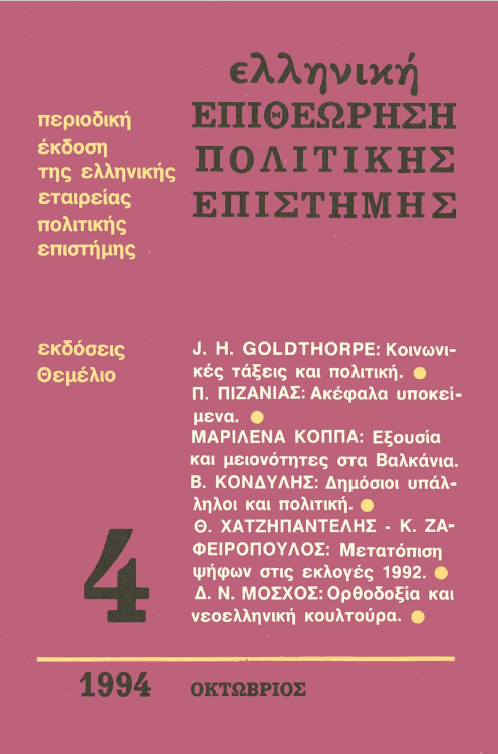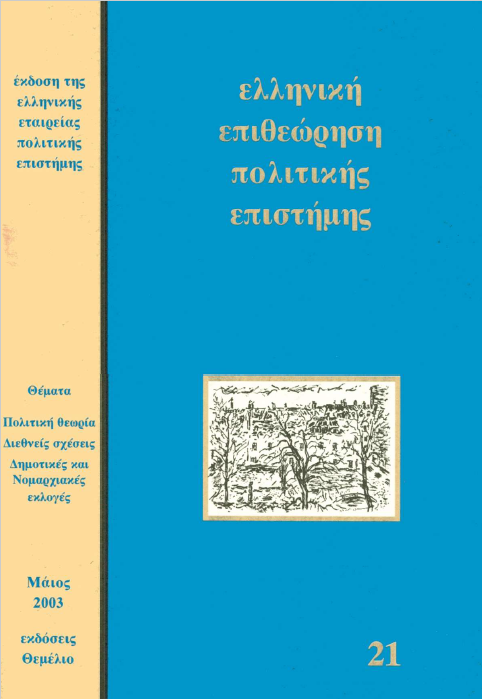Πολιτική εξουσία και μειονότητες στα Βαλκάνια στη μετακομμουνιστική εποχή
Abstract
Δεν διατίθεται περίληψη στα ελληνικά
Article Details
- Zitationsvorschlag
-
Κοππά Μ. (2017). Πολιτική εξουσία και μειονότητες στα Βαλκάνια στη μετακομμουνιστική εποχή. Ελληνική Επιθεώρηση Πολιτικής Επιστήμης, 4(2), 58–98. https://doi.org/10.12681/hpsa.15296
- Ausgabe
- Bd. 4 (1994)
- Rubrik
- Άρθρα

Dieses Werk steht unter der Lizenz Creative Commons Namensnennung - Nicht-kommerziell - Weitergabe unter gleichen Bedingungen 4.0 International. Οι συγγραφείς θα πρέπει να είναι σύμφωνοι με τα παρακάτω: Οι συγγραφείς των άρθρων που δημοσιεύονται στο περιοδικό διατηρούν τα δικαιώματα πνευματικής ιδιοκτησίας επί των άρθρων τους, δίνοντας στο περιοδικό το δικαίωμα της πρώτης δημοσίευσης. Άρθρα που δημοσιεύονται στο περιοδικό διατίθενται με άδεια Creative Commons 4.0 και σύμφωνα με την οποία μπορούν να χρησιμοποιούνται ελεύθερα, με αναφορά στο/στη συγγραφέα και στην πρώτη δημοσίευση για μη κερδοσκοπικούς σκοπούς και με δικαίωμα τροποποίησης μόνο με παρόμοια διανομή (αν αναμείξετε, τροποποιήσετε, ή δημιουργήσετε πάνω στο υλικό, πρέπει να διανείμετε τις δικές σας συνεισφορές υπό την ίδια άδεια όπως και το πρωτότυπο).
Downloads
Keine Nutzungsdaten vorhanden.




